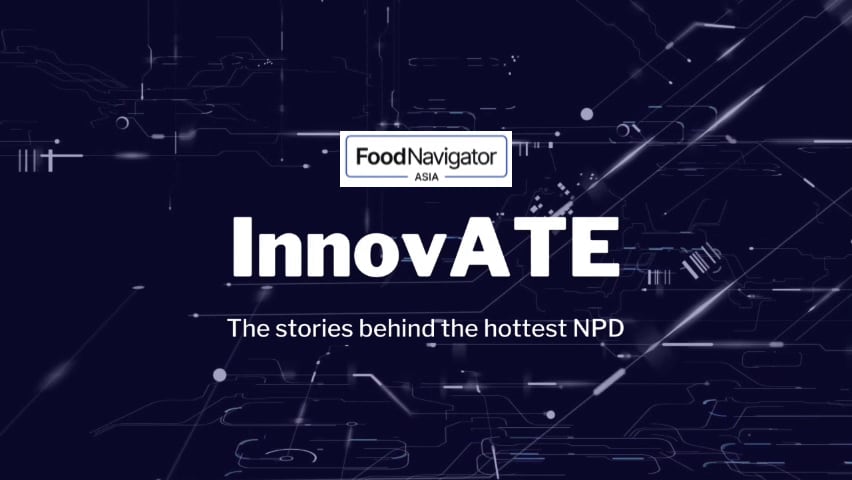Academics play crucial role in ‘upgrading’ China’s functional food sector, say experts
Food industry academics in China have a major role to play in ‘upgrading’ the local functional foods sector, especially when it comes to discerning TCM herbs for food usage and novel foods development.
A lot of growth in China’s functional food industry has come from research into herbs used in Traditional Chinese Medicine (TCM) and identifying suitable ones that can be integrated into everyday foods and beverages.
However, given the complexity and vastness of herbal and medical knowledge found in TCM compendiums, local food industry academics believe that progress is not as fast as it could be in terms of ‘upgrading’ the functional foods sector.
“The food industry is one of the most important development areas in China, and when it comes to innovation and growth, we must remember that academia is at the core of the R&D and new scientific breakthroughs that make these upgrades possible,” China Ministry of Education Changjiang Chair Professor Zhengqiang Jiang told the floor at the recent Food Ingredients China (FIC) 2025 show in Shanghai.
Co-piloting food production: What roles can AI play in the future of food beyond automation?
Artificial intelligence (AI) is set to break many boundaries in food manufacturing, with experts identifying formulation, process optimisation and speed-to-market as key benefits.
AI has been a buzzword in the Asia Pacific food and agriculture industry for some time now, but in terms of practical application a lot of focus has primarily been on production automation, trendspotting or predictive maintenance.
As the technology evolves and advances, this is set to change and AI is now believed to have the potential to add value to food production in many more facets.
“We are starting to see AI unlock much deeper value across the entire product development lifecycle beyond just automation or consumer insights – it is becoming a true co-pilot in how we design, produce, and optimize food systems,” Future Food Asia 2025 (FFA25) organising firm ID Capital CEO Isabelle Decitre told FoodNavigator-Asia.
PepsiCo APAC eyes more ‘win-win’ partnerships from latest accelerator programme
PepsiCo is hopeful that more ‘win-win’ partnerships between the global F&B giant and regional startups will come out of its latest Greenhouse Accelerator (GHAC) programme in APAC.
The firm recently announced the 10 startup finallists for GHAC APAC, covering a wide range of disciplines from waste management solutions and upcycling methodologies to green hydrogen systems.
According to PepsiCo APAC Chief Sustainability Officer Ashley Brown, PepsiCo sees the GHAC as a ‘win-win’ solution for both the company as well as the start-ups involved in the programme.
“The GHAC is a strategic extension of our business priorities in Asia Pacific. It enables us to work alongside startups to test, adapt, and scale innovations that drive both sustainability outcomes and commercial value,” he told FoodNavigator-Asia.
AI, healthier food alternatives dominate in Future Food Asia Award Top 10 finalist list
Future Food Asia (FFA) has unveiled the top 10 list of agrifoodtech start-ups vying for the US$100,000 FFA Award, with companies presenting new AI tech and healthier food alternatives dominating the final list.
Future Food Asia is an annual event organised by investment consultancy firm ID Capital in Singapore, comprising an in-depth conference on the future of food as well as the awarding of the coveted FFA Award.
According to the firm, this year saw over 150 applicants from over 25 countries, which were vetted through by a jury to leave the top 10 finallists.
Notably, artificial intelligence (AI) has made a big appearance in this list with Singapore’s Aquaeasy and China’s Changqingtang3d both leveraging expertise in this area to develop their technologies.
Hybrid product innovation increasingly important to ‘overcome shortcomings’ in APAC nutrition
Hybrid products made from both animal and plant-based proteins have the potential to break out of the alt-protein space and play a broader role in addressing nutritional gaps.
The development of these hybrid products were previously most often considered as part of the alternative protein category, but experts now believe that the need to focus on this segment goes far beyond protein alone.
“Hybrid products have a major opportunity to really stand out in terms of nutrition as well as other aspects and not just as an alternative protein, as there is room to blend and fuse things in order to overcome shortcomings of any individual ingredient,” Head of Nutrition, Singapore Institute for Food and Biotechnology Innovation (SIFBI) said.





